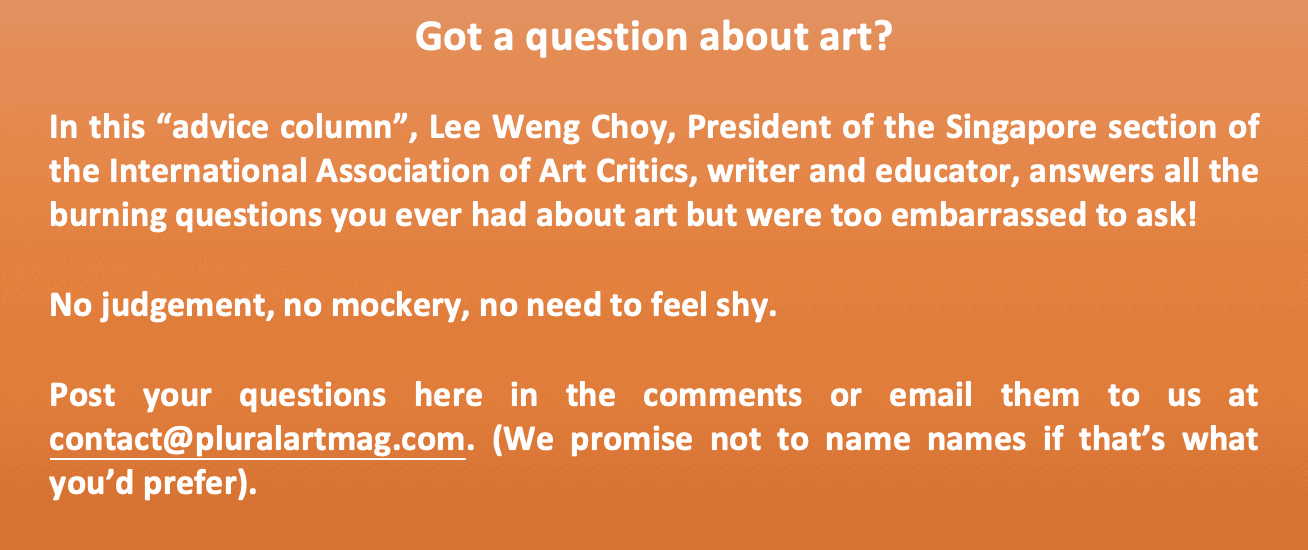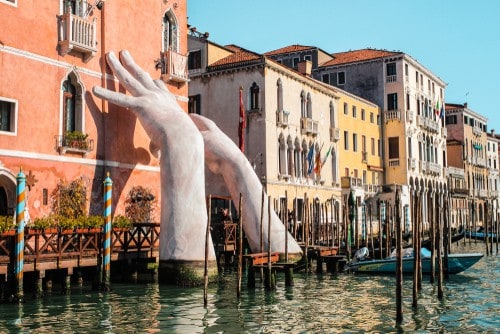What Qualifications Must a Person Have to Become an Art Critic?

Question:
"How does an art critic obtain the credentials to be one? At the stop of the solar day, isn't a critic merely an opinionated arbiter of taste with his or her ain preferences? What checks and balances are in place to ensure that a critic's commentary will be off-white, informative and actually constructive to artists?"
Respond:
In that location are credentials, and there is brownie. For most practising art critics, I'd wager that information technology's the latter that matters more than. As someone who's been writing criticism for a quarter of a century, naturally, information technology's something I care a lot about, and today'due south question cut close to home.
Then let'south get started. First, credentials. For quite some time, various intellectual activities take been regulated and credentialed, by convention if not past law. If you desire to become an art historian, so you become your PhD from a university art history department. It's a dandy matter that today our great minds come from places other than the privileged classes.
But college education is far from universal, more than expensive than it should be, and there aren't plenty scholarships to go effectually. What'southward worse, these days, besides many universities act too much like businesses and factories rather than educational institutions, being all too happy to pump out dodgy degrees – desperately researched or argued PhDs and MAs, but paid for and passed nevertheless. Moreover, academics themselves have sometimes criticised the academy for beingness overly regimented and for stifling creativity and genuine intellectual achievement.
All this to say that the process of getting a degree in one'southward corresponding field is not a guarantee of true worthiness. But complications and caveats aside, I'yard not suggesting that we become cynical near credentials, but skeptical (hey, I'one thousand a critic, I advocate skepticism about nearly everything).
Yous may have noticed that there are near no PhD programmes or university departments for fine art criticism. At that place are courses, to be sure, merely art criticism is not what we telephone call an academic subject area. That's because it has been, and continues to exist, a mongrel practice. Each critic has his or her own mix of influences and training, drawing from philosophy, theory, fine art history, literary criticism, cultural studies, anthropology, sociology, journalism, poetry, fiction and and then on.
There is no standard grooming for practising criticism, and I remember that'south a practiced thing. But if critics shouldn't accept to go through a credentialing process like getting a PhD, it's still of import that we discover means to constitute credibility.

Permit'southward stride back a chip. How does one become a critic? Really, it's rather elementary: starting time writing criticism. Say a person is very interested in art, perhaps even attended a few art history lectures during university. But this person isn't an arts professional person – permit's say she currently works as a dental hygienist. She decides 1 twenty-four hour period to start a weblog writing reviews most the shows she sees in town, and when she travels, which she does regularly, she makes the attempt to visit galleries and museums, and writes about those exhibitions also.
Permit'southward say she's a talented and prolific writer, and it'due south been four years since she's started the blog, which has a good number of readers. Not only does she write reviews, when she can make the connectedness she also does interviews with artists, curators and art historians besides. Once in a while, she posts a longform essay. And all this as an "amateur", since she's dedicated to her day job. How does she find the time and energy! Sometimes she wonders if she should make a career switch, and go back to school, get a degree in art history, maybe eventually a PhD, and go an bookish.
I could tell a similar story, but this time instead of writing near art, our dental hygienist decides to start cartoon, and she exhibits these on her Instagram contour, which now has many followers. She reads voraciously about fine art history and theory and everything else. Her drawings often make social commentary every bit well equally satirise the artworld. She is talented and has idea almost one day making a career switch and going to fine art school …
We tend to compare critics with art historians, because they both write nearly art. But what about seeing the kinship between critics and artists. Both a critic and an artist can decide to get what they desire to be by virtue of practising the arts and crafts. While going to school is often what ends upwards happening, that is non necessary, just recommended. I emphasise this kinship, because I detected an assumption of antagonism in today'due south question, pitting critic against artist, viewing the former as "but an opinionated arbiter of taste."
Some artists brand all sorts of commentary, explicitly or implicitly, about social values and taste. They don't need to exist credentialed for u.s.a. to accept them seriously, they just need to be good – howsoever one defines that. A skilful novelist, painter, filmmaker – they can be very opinionated, but generally, audiences accept an artist'south correct to her opinions, fifty-fifty if they don't always hold.
But once in a while, I find someone questioning the rights of critics to take their own opinions. Why? Why do nosotros value individuality and independence in an creative person, but non in a critic?
Somehow the critic'due south opinion becomes "mere" stance, and her independent perspective, self-appointed. When we challenge a critic'southward opinions, are we saying that she doesn't take the requisite legitimacy or expertise to make her arguments, or that we disagree with her?
Let's get back to our hypothetical dental hygienist art critic. Ane thing that is missing in her writing career is the continual interaction with editors, as well as a more intense appointment, beyond the occasional interview, with artists, art historians, curators and other art writers, and a full immersion into local, regional and international arts communities. Together, these multi-level engagements with arts professionals provide the "checks and balances" that today's questioner asks about.

To wrap upwards, let me share a real-globe story almost "checks and balances" and "mere opinions". When Singapore fix up its kickoff pavilion at the Venice Biennale in 2001, the local media were giddy with pronouncements of how the country hadarrived at the world'southward near prestigious contemporary art event.
A couple of years afterwards, a local newspaper sent a food critic to comprehend the following Venice Biennale. The journalist defiantly and proudly proclaimed that she was an "arts idiot". Baffled by a good deal of what she saw in Venice, she was dismissive of it; she even ended her piece past suggesting some fine art stunt that she might do, if ever she was invited to participate in the Biennale. It was her version of knowing nothing about abstruse painting, looking at a Jackson Pollock, and scoffing, "my kid could practise that."
The blame lies by and large with the editors. First of all, they shouldn't have given the assignment to someone without credentials or brownie. The media has a responsibleness to encompass the Biennale – which they had touted equally being of such major importance – and to cover information technology in proficient religion. Y'all wouldn't ship a sports writer to a tiptop of earth leaders.
Simply even if the editors did grant the Venice consignment to a food critic, which could have been a brave editorial choice, then they should accept worked closely with her to produce a text that fabricated a virtue of the art novice's perspective, one that endeavoured to make different and difficult encounters more than accessible to the full general audience. Instead of allowing the writer to entrench her ain prejudices, the editors should have helped her realise the occasion was an opportunity to exist curious.
ramaciottiopetchas63.blogspot.com
Source: https://pluralartmag.com/2019/02/26/how-does-an-art-critic-obtain-the-credentials-to-be-one/